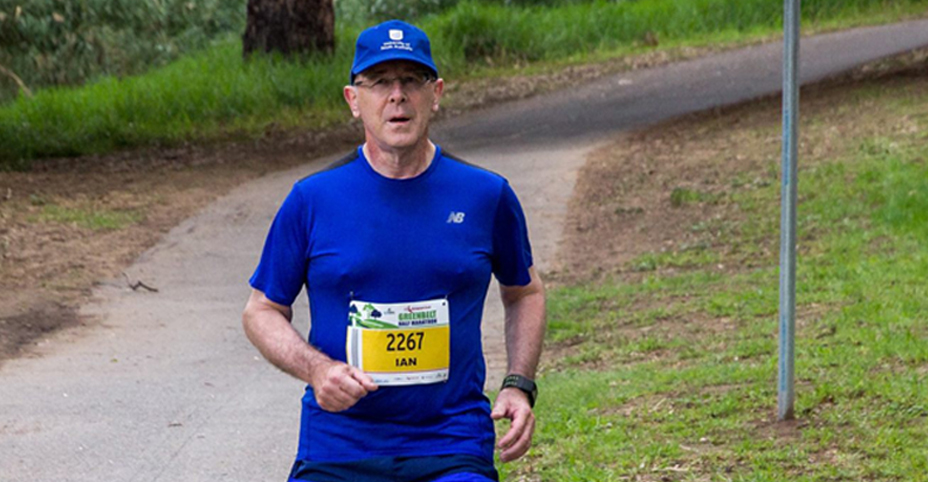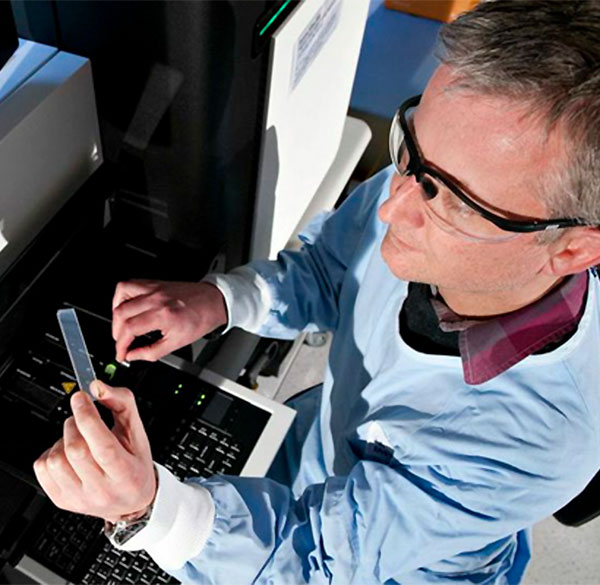
Professor Ian Olver AM, Director of the Sansom Institute for Health Research
Cancer expert Professor Ian Olver, former CEO of Cancer Council Australia, will take up a different sort of challenge this November, donning his running shoes to pound the pavement at the New York City Marathon to support lifesaving research in adolescent cancer.
“Running a marathon has been a personal ambition for some time and as an extra incentive I have set myself a $12,000 fundraising target for research we hope will save young lives,” said Professor Olver, who now leads a team of internationally recognised cancer and health researchers at University of South Australia.
The UniSA based research aims to improve the survival rates and treatment outcomes of adolescent and young adult (AYA) cancer patients by looking at treatment adherence.
Increasingly, AYA cancer patients are treated with oral chemotherapy in tablet form that can be taken under limited supervision. However, there is growing concern for these patients as a large number appear to be failing to stick to their treatment schedules – which is critical if the chemotherapy is to work effectively.
“Sadly these young patients often have high rates of failed treatment and thus devastating consequences including death due to not understanding or forgetting they must strictly adhere to their oral chemotherapy schedules,” he said.
“We need to create an engaging way to keep these patients on their treatment schedule and track those who are missing doses as well as educate them about their treatments and how to manage their symptoms.”
Until now no trials have investigated effective strategies to improve treatment adherence in AYA patients. The available evidence suggests as few as 16% of AYA patients adhere to their prescription appropriately. This means as much as 84% of AYA patients are at high risk of poor outcomes from failing to take their medication on time or missing a dose.
“Our researchers are looking at new technologies that are likely to engage these patients to successfully complete their treatment, including trialling a smartphone delivered intervention,” said Professor Olver.
Motivated by the knowledge that Australia has one of the highest rates of smartphone ownership in the world, the UniSA research project will trial a text based intervention system that delivers schedule reminders. It will also deliver important information about the treatment and how to manage side-effects which can reduce quality of life and lead to severe consequences if not addressed adequately.
AYA cancer patients will have a say in what form the delivered information takes to ensure the content is engaging. Using a text based system will also allow patients to keep the content on their smartphones where they are less likely to lose the information.
The funds raised will also allow the researchers to invest in medication monitoring equipment that captures treatment data. Each trial participant will be given their oral chemotherapy in a special tablet container that is fitted with a smart closure that records and transmits the time and date each time it is opened. This will allow the research team to capture data corresponding with the text intervention to assess if patients’ adherence improves.
“There is currently a big need for patients, especially AYA, to receive adequate support in order to follow oral chemotherapy prescriptions. This is a global issue, and most health centres don’t count with standardized procedures to monitor patients’ adherence,” said Xiomara Skrabal-Ross, PhD researcher leading the project.
“About 25% of oral chemotherapy agents are designed to be taken at home, which is expected to increase, so we need better systems to help these patients self-manage and engage in their treatment to ensure they have the best possible outcome,” she said.
“Oral chemotherapy can also have dangerous side-effects so if we can have this text based system also delivering symptom management tools we also have the opportunity to ensure these patients seek timely medical intervention when needed.”
To make a donation visit Ian’s crowdfunding campaign at www.chuffed.org/project/nyc-marathon-for-young-cancer-patients. Ian will be self-funding all expenses associated with running the marathon so all donations will go directly to this essential research.

When you give today, 100% of your donation will go directly to the researchers - with no admin fees or hidden costs.
The University of South Australia (UniSA) is committed to tackling one of our most challenging diseases – cancer – by establishing the largest cohort of cancer researchers ever assembled in South Australia. Every day our experts are getting one-step closer to saving more lives as well as improving the quality of life for cancer survivors. But they need your help.
